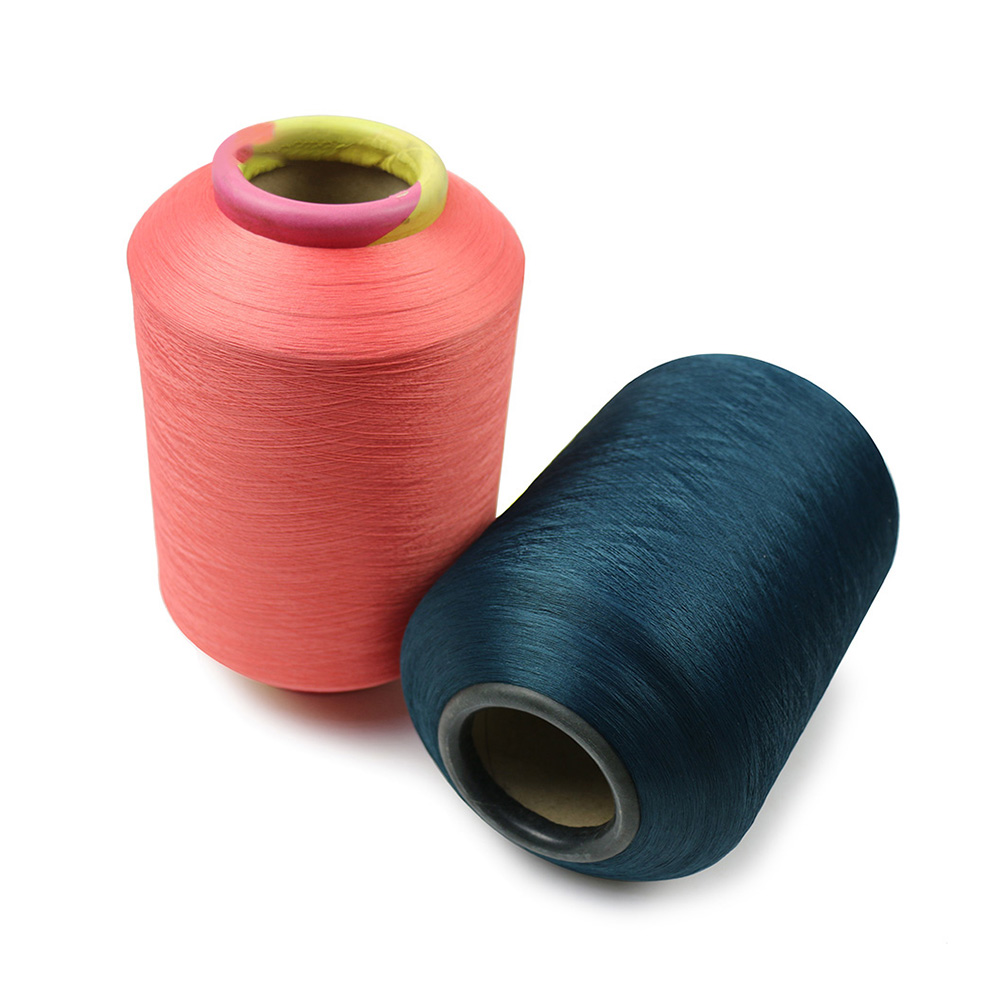If you are interested in some of our products, please feel free to visit our website or contact us for detailed information.

The key properties that differentiate chemical fiber yarn from natural fiber yarn include:
Source of Origin:
Chemical Fiber Yarn: Originates from the meticulous synthesis of polymer compounds derived primarily from petrochemical feedstocks. This deliberate process ensures a standardized and controlled source for yarn production.
Natural Fiber Yarn: Arises from organic sources, either plant-based (e.g., cotton, flax) or animal-derived (e.g., wool, silk), necessitating intricate cultivation and extraction procedures.
Chemical Composition:
Chemical Fiber Yarn: Constituted by polymers with an intricately engineered and consistent chemical structure. The precision in the chemical makeup facilitates a high degree of control over the yarn's physical and mechanical properties.
Natural Fiber Yarn: Exhibits a nuanced and variable chemical composition dictated by genetic factors, environmental conditions, and agricultural practices, resulting in a rich tapestry of fiber types.
Production Process:
Chemical Fiber Yarn: Crafted through sophisticated industrial methodologies such as melt spinning, dry spinning, or wet spinning. The exacting control over parameters like temperature and chemical reactions ensures a reproducible and standardized yarn manufacturing process.
Natural Fiber Yarn: Involves a multi-faceted journey from planting and cultivation to harvesting, ginning, and spinning. This intricate process introduces inherent variability, influenced by factors like soil quality, climate fluctuations, and harvesting techniques.
Uniformity:
Chemical Fiber Yarn: Showcases an impressive homogeneity in diameter, length, and physical attributes owing to the precision of automated synthetic fiber production.
Natural Fiber Yarn: Expresses a charming diversity in properties due to the organic nature of growth and the impact of external factors, resulting in a more eclectic range of yarn characteristics.
Strength and Durability:
Chemical Fiber Yarn: Boasts a robust tensile strength and durability attributed to a uniform molecular structure devoid of the inherent weaknesses found in some natural fibers.
Natural Fiber Yarn: Presents a spectrum of strength characteristics, with some natural fibers exhibiting comparable tensile strength, while others may have distinctive performance profiles.
Moisture Absorption:
Chemical Fiber Yarn: Exhibits a controlled moisture absorption profile, maintaining dimensional stability by resisting swelling or shrinking in response to environmental humidity.
Natural Fiber Yarn: Displays a dynamic hygroscopicity, reacting to ambient moisture levels, and environmental conditions, providing a unique tactile experience.
Elasticity:
Chemical Fiber Yarn: Possesses a consistent and controlled elasticity, contributing to resilience and shape retention in diverse end-use applications.
Natural Fiber Yarn: Reflects the inherent elasticity of specific fibers, with wool exemplifying excellent stretch recovery while other fibers exhibit variable elastic behaviors.
Allergenic Potential:
Chemical Fiber Yarn: Generally considered hypoallergenic due to the absence of natural proteins known to trigger allergic reactions.
Natural Fiber Yarn: Allergenicity varies depending on the specific natural fiber, with wool allergies being infrequent but documented in a subset of individuals.
Biodegradability:
Chemical Fiber Yarn: Presents challenges in biodegradability due to the synthetic nature of polymers, prompting considerations for environmental impact and sustainable disposal practices.
Natural Fiber Yarn: Exhibits commendable biodegradability, aligning with eco-friendly practices and fostering a more sustainable life cycle.
Cost:
Chemical Fiber Yarn: Demonstrates economic efficiency in production, benefiting from streamlined and scalable industrial processes for polymer synthesis and yarn manufacturing.
Natural Fiber Yarn: Encompasses varied production costs influenced by factors such as agricultural practices, climate conditions, and processing methods, contributing to a nuanced pricing landscape.
China factory eco-friendly stock lot yarn for socks production

China factory eco-friendly stock lot yarn for socks production


 English
English Español
Español








